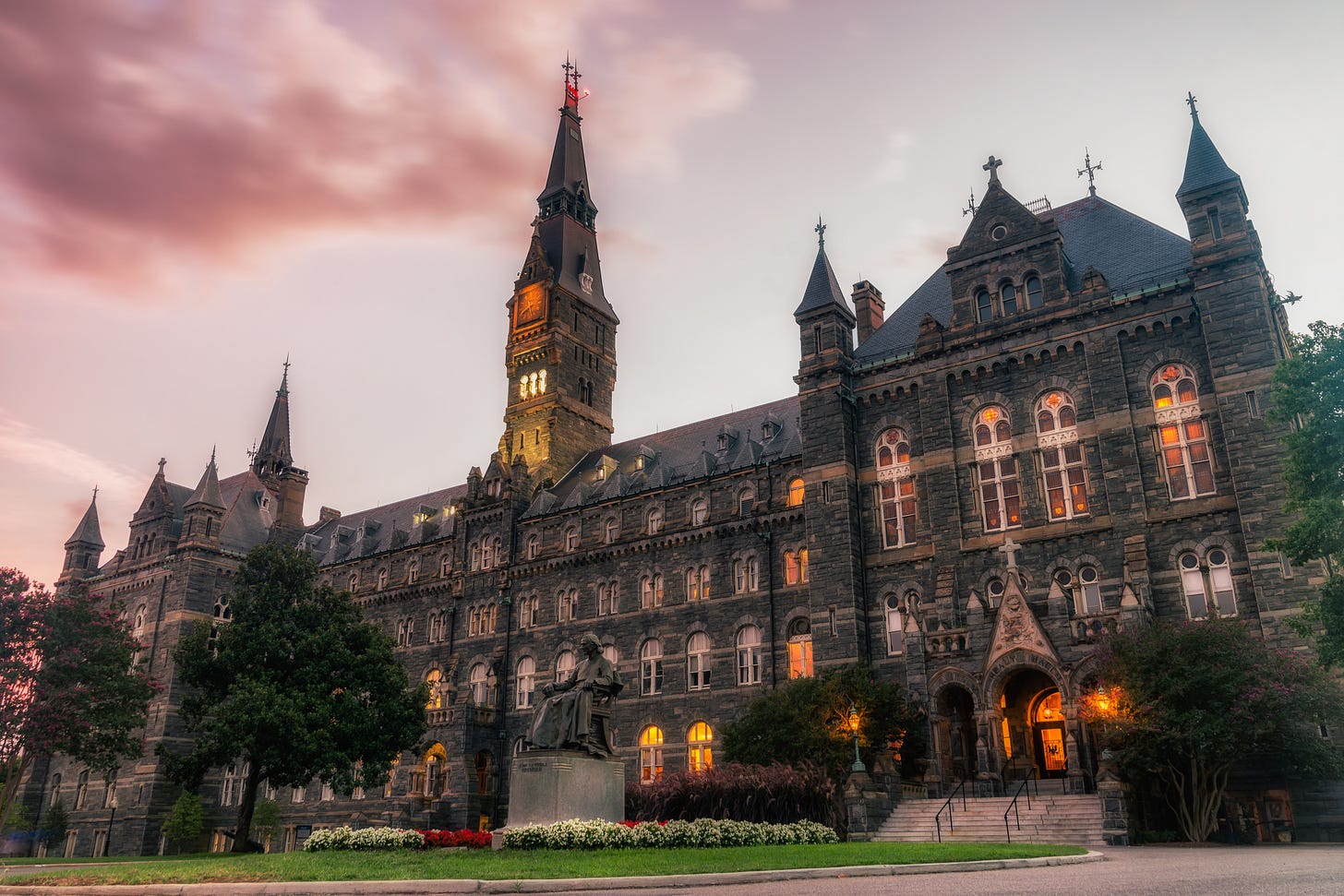DHS Detains Georgetown Postgrad Fellow, Community Responds
Badar Khan Suri, an Indian national, was arrested on Monday outside his Rosslyn home, and is now in custody in Louisiana.
On Monday night, Department of Homeland Security agents arrested Badar Khan Suri, a postdoctoral researcher in Georgetown’s Prince Alwaleed Bin Talal Center for Muslim Christian Understanding (ACMCU) outside his Rosslyn home. According to a DHS webpage, he is now being held at a detention center in Louisiana.
Suri is an Indian national who was studying in the United States on a J-1 student visa, living in Rosslyn with his wife, Mapheze Saleh (GRD ‘26), an American citizen. According to DHS spokeswoman Tricia McLoughlin, Suri was publishing “Hamas propaganda and promoting antisemitism on social media” and had personal connections to Hamas. A 2018 Hindustan Times article profiling the couple said that Saleh’s father was a political advisor to Hamas. Khan Suri’s X profile appears primarily to advocate for human rights in Palestine, not to call for support for Hamas. His last activity was from May 2024.
The Georgetown community has largely expressed support for Khan Suri. Faculty and Staff for Justice in Palestine (FSJP) and Zeytoun, the graduate student organization advocating for decolonization in Southwest Asia and North Africa, posted an open letter on Instagram, saying “the struggles at home and abroad are interconnected: also this week, we witnessed the abduction and detention of a Georgetown faculty fellow, Badar Khan Suri.” They called for his immediate release. The post also stated: “we stand against the repression of free speech and academic freedom.”
Khan Suri’s department, the ACMCU, also published a statement, saying that Khan Suri was “arrested in the context of a campaign by the Trump Administration to destroy higher education in the United States and punish their political opponents.”
In an email first sent first to SFS faculty and subsequently to SFS students, Dean Joel Hellman reaffirmed the legality of Suri’s visa, and said that he was “not aware that Dr. Suri has engaged in any illegal activity, nor has he posed a threat to the security of our campus. He has been focused on completing his research.” Dean Hellman also expressed concern for Suri’s welfare and implications for free speech on campus.
Congressman Don Beyer, who represents Virginia’s 8th District, including Rosslyn, published a statement on Thursday asserting that “Suri's detention is a clear violation of his constitutional rights, and he must be released.” He also said that the arrest was “a blatant attack on the First Amendment.”
The arrest, in conjunction with the arrest and deportation of other Palestinian rights activists, notably including Mahmoud Khalil and Rasha Alawieh, seems to threaten repercussions for any student expressing support for Palestinian rights or opposition to the Israeli government on American campuses. This could be the goal of the Trump administration’s policies. In January 2025, the White House published a fact sheet titled “President Donald J. Trump Takes Forceful and Unprecedented Steps to Combat Anti-Semitism,” which said that the Department of Justice would take aggressive action to “protect law and order, quell pro-Hamas vandalism and intimidation, and investigate and punish anti-Jewish racism in leftist, anti-American colleges and universities.” The fact sheet also promises to “quickly cancel the student visas of all Hamas sympathizers on college campuses, which have been infested with radicalism like never before.”
Normally, a J-1 visa may be revoked if the holder violates the travel rules of their visa, engages in unauthorized employment, fails to maintain valid healthcare, changes their J-1 sponsor, or is convicted of a crime. The Department of Homeland Security did not publicly cite any of these as reasons for the revocation of Suri’s visa.
Rather, it appears that he was arrested and his visa was revoked using a rarely-used provision of US immigration law, which allows the secretary of state to classify a non-citizen as a threat to American foreign policy and revoke their legal status. This appears to be the mechanism through which both Mahmoud Khalil and Badar Khan Suri were arrested. This means that although Badar Khan Suri has not committed any crimes, the administration believes he poses a threat to American security by virtue of his vocalization of support for Palestinian rights.
On Thursday, Judge Patricia Tolliver Giles of the United States District Court for the Eastern District of Virginia ruled that Khan Suri could not be deported, pending a further decision from that court. Nevertheless, the events of the last week will hit close to home for other Hoyas living here on student visas, and aims to frighten Americans away from speaking out on Palestine and other sensitive issues. This is a sobering and alarming indication for the future of free speech on campus, and it is critical that students and faculty maintain their support for Khan Suri, and refuse to be censored.






